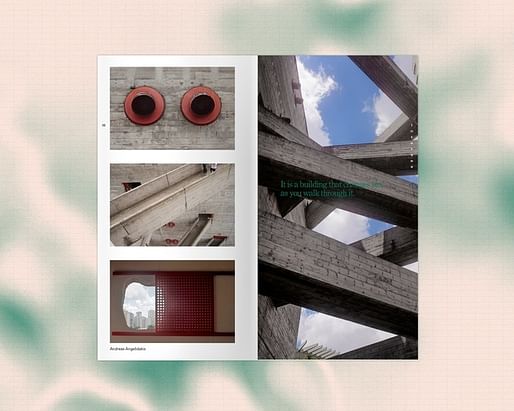
Façadomy is new publication that looks at contemporary identity through the lenses of art and architecture. Façadomy's inaugural issue, Gender Talents explores the landscape of self-determined gender. It builds off the work of progressive sexologist Esben Esther P. Benestad, who has observed seven distinct genders in their practice as a therapist in Norway. Three prominent voices in contemporary art and architecture reflect on these seven themes... — Façadomy
Conversations around gender and identity – long excluded from the "gentleman's profession" of architecture – are seeping more and more into architectural discourse.
For example, the AIA announced recently that they would cancel their conference in North Carolina because of the passage of HB2, a bill widely described as transphobic, exclusionary, and bigoted. And, while the number of women in architecture remains low (with a high dropout rate post-college), and the way female architects are treated remains poor (if not violent and illegal), at least the conversation seems to have picked up in recent years.

But there's so much more to be said about the relationship between architecture and identity-formation than can fit into a crisis management-oriented footnote. The built environment both mirrors societal norms about identity and reinforces them. It's the ground on which we learn, perform, enforce, resist, or trouble gender norms.
Enter Façadomy, a new publication that looks squarely at identity vis a vis architecture. After selling out their preview edition at the New York Art Book Fair, Façadomy has launched a Kickstarter campaign to fund a full-scale first issue.

Featuring original writing by architect Andreas Angelidakis (who's been featured on Archinect before), artist Juliana Huxtable, and writer/'influencer' Kimberley Drew (AKA @museumammy), the first issue Gender Talents "explores the landscape of self-determined gender."
The issue title is appropriated from the theories of the influential Norwegian sexologist Esben Esther P. Benestad who observed seven distinct gender identities. The issue considers these as seven themes, "intersecting gender with notions of race, sexuality, power dynamics and the built environment."
Façadomy has the potential to be an exciting new voice in architecture discourse. Check out their Kickstarter page to learn more and to pledge!

For related coverage, check out these links:
No Comments
Block this user
Are you sure you want to block this user and hide all related comments throughout the site?
Archinect
This is your first comment on Archinect. Your comment will be visible once approved.